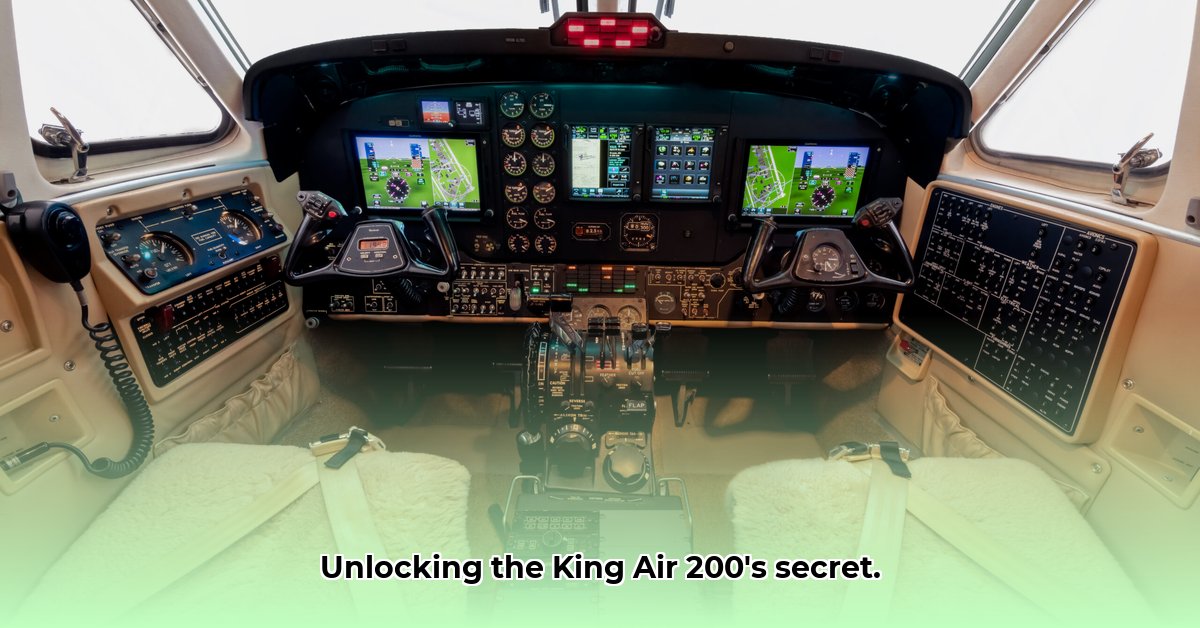
A South African Aviation Icon: History and Enduring Appeal
The Beechcraft King Air 200, a true stalwart of South African skies, has enjoyed remarkable longevity since its introduction in 1974. With over 7,600 units produced and a combined 62 million flight hours logged, its enduring popularity is a testament to its robust design and versatile applications. But how has this turboprop maintained its market position amidst evolving technology and increased competition? This article examines the King Air 200's historical trajectory, current market standing, and future prospects. Is its success story set to continue, or are challenges looming on the horizon?
A Legacy Forged in Reliability
The King Air 200's success isn't merely a matter of chance. Its consistent innovation and adaptability have secured its place in aviation history. Its long production run reflects its reliable design and consistent performance. Many South African businesses, from agriculture to tourism, have come to rely on its versatility. Its strong reputation, earned over decades of reliable service, is a significant selling point. But how has this translated into concrete sales figures?
Market Performance: A Detailed Look at Sales and Resale Value
Sales figures for the King Air 200 have experienced fluctuations. While 2016 saw robust sales of around 106 units, subsequent years witnessed a slowdown. The weaker international market and the rise of competitors undoubtedly played a role. However, this turboprop retains a strong resale market. A 2011 King Air 250, for example, could command around R45 million today, highlighting its inherent value and continued demand. This robust resale value is a potent indicator of customer satisfaction and trust. Does this sustained demand outweigh the effects of slowing sales?
The Competitive Landscape: Benchmarking Against Rivals
The King Air 200 isn't alone in the turboprop market. The Piaggio P.180 Avanti emerges as a prominent competitor. While the Avanti boasts superior speed, the King Air 200 often holds an advantage in terms of operational costs, passenger capacity, and notably higher resale value. This highlights a key differentiator – the King Air 200 offers a compelling balance of practicality and cost-effectiveness. How significant is the difference in operational costs, and does this factor outweigh the speed advantage of the Avanti?
Technological Advancements and Future Outlook: Adapting to Change
The future of the King Air 200 hinges on its ability to adapt to technological advancements. The emergence of hybrid-electric propulsion, while still in its nascent stages, presents both a challenge and an opportunity. Future success lies in Textron Aviation's capacity to invest in research and development, integrating new technologies while maintaining the aircraft's hallmark reliability and operational efficiency. Will the company make the necessary investments to keep its flagship model relevant?
Operational Considerations: Cost and Maintenance
The King Air 200's operational costs, including maintenance and pilot training, are a crucial aspect for potential buyers. These costs, while substantial, often pale in comparison to the aircraft's overall value and operational efficiency. The robust resale value further mitigates these expenses. Yet, the ongoing cost of maintenance is a factor that potential buyers must weigh carefully. What are the specific cost factors that determine the overall operational picture?
Conclusion: A Timeless Classic Facing Future Challenges
The Beechcraft King Air 200 has proven its resilience over nearly five decades. Its remarkable history, strong resale values, and versatile applications speak to its enduring appeal. However, the changing market dynamics and the rise of new technologies present significant challenges. Its long-term success rests on Textron Aviation's strategy to innovate and adapt, ensuring the King Air 200 remains relevant in a competitive and technologically advanced aviation landscape. Can Textron meet these challenges and continue the plane’s legendary success story?
Actionable Insights: Three Key Strategies for Continued Success
- Proactive Obsolescence Management: Regular technology assessments and strategic partnerships are vital for mitigating technological risks.
- Market-Driven Upgrades: Continuous analysis of competitor offerings informs necessary upgrades to maintain a competitive edge.
- Prioritize Adaptable Technologies: Investing in future-proof technologies will secure the King Air 200's relevance in the long term.